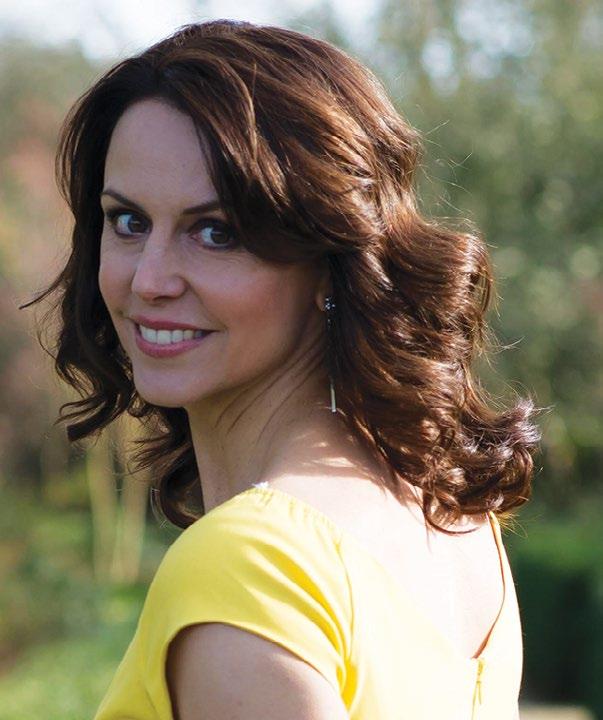
4 minute read
BEVERLEY TURNER
COVID-19
and the art of reinvention
Advertisement
As we look back on the last twelve chaotic months, it feels as though life stood still: holidays not taken, exams not sat and weddings not held. But, for many people, there have been enormous changes which are easy to ignore. Under the pressure cooker of a lockdown lifestyle, we have all been forced to reflect on what truly makes us happy and question whether our lives could be improved. And if so, what changes do we need to make?
To be fair, these are the sorts of huge considerations that women have been undertaking for generations and men have - only more recently - found themselves similarly reflecting upon. Because becoming a parent is to endure or enjoy a minilockdown of your own. And whether we love or loathe that time, we never emerge the same person.
When parenting was overwhelmingly a female pastime, men tottered off back to work to wet the baby’s head down the pub at lunchtime. Mothers would take sole care of their new-born, partly out of the necessity of breastfeeding, partly out of love and partly due to cultural expectations. Even now, less than a third of eligible men take paternity leave and so the ‘hands-on’ part of early parenting remains largely a female responsibility. And so, when children and families grow, it predominantly remains the job of the mum to reclaim – or redefine – her own identity. How does she balance paid work with the mountain of unpaid chores? How does she reconcile financial changes with a sense of self-worth? Who the hell is she when she looks in the wardrobe, the mirror or the future?
The changes forced upon millions of families over the last year have caused similar personal dilemmas in households all across the world – for both women and men. But I have a theory – women are likely to weather these storms more adeptly than their male partners. We are already brilliant at utilising the skills of reinvention. We probably haven’t given ourselves credit for this (we rarely do), but it’s true.
Just think about the millions of mothers over the last fifty years and beyond who left their jobs; started their own ventures or retrained to get a better work-life blend. We mums (and I’m one of those) are used to riding these waves of massive change. Sorry, fellas, I don’t mean to be dismissive. But men are commonly skilled at choosing a career and sticking to it with commitment and determination – and thank god for that. But in a time of cultural flux, the female of the species is arguably better equipped than the male.
Resourcefulness, imagination, communication and the courage of reinvention will all be requirements as we head into the rest of 2021. Change has affected each and every one of us in ways we may not have considered and only the brave will emerge happier and wiser.
We have all been wondering if we are content. House prices have rocketed outside London as families flee to bigger gardens with permission to work from home. Do we want to continue our jobs? Do we have a job to go back to? 250,000 small businesses have closed in the UK. Has being around for the kids made us want to work fewer hours? Or are we so sick of our little angels that we’re busy googling boarding schools? (I’m kidding – sort of…). How are we going to pay the mortgage and feel professionally or personally fulfilled in the post-apocalyptic world into which we are stepping? This line of questioning and the need to create a new project out of the dying embers of my own career, forced me to devise a new podcast with old friend, Marina
Fogle (wife of TV’s Ben, but so much more than that). Entitled, “As Good As It Gets?” our conversations question when we can expect to find contentment in life and what changes we can make if we decide that we are simply not happy enough.
Marina and I choose a topic with universal appeal each week and discuss how it fits into all of our lives. So in ‘Identity’ we grapple with how we might answer ‘who am I?’ at different stages of life; in ‘Marriage’ we very honestly document the trials (and joys) of long term relationships; under the heading of ‘Honesty’ we turn over when it is necessary to be frank and when diplomatic white lies might be wiser – all with one eye on the notion of aiming for a life ‘as good as it gets.’ We don’t always agree with one another, but we do listen and reflect. We are frequently told that it’s like “listening to two friends having a glass of wine in the kitchen.” And boy have we missed that. So, I for one, will drink to the notion of getting such simple pleasures back soon, even if we are not quite the same people we once were.








